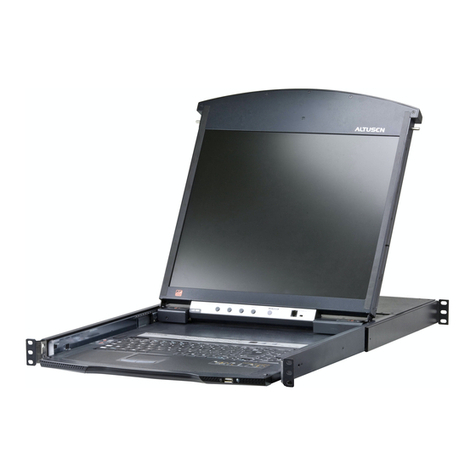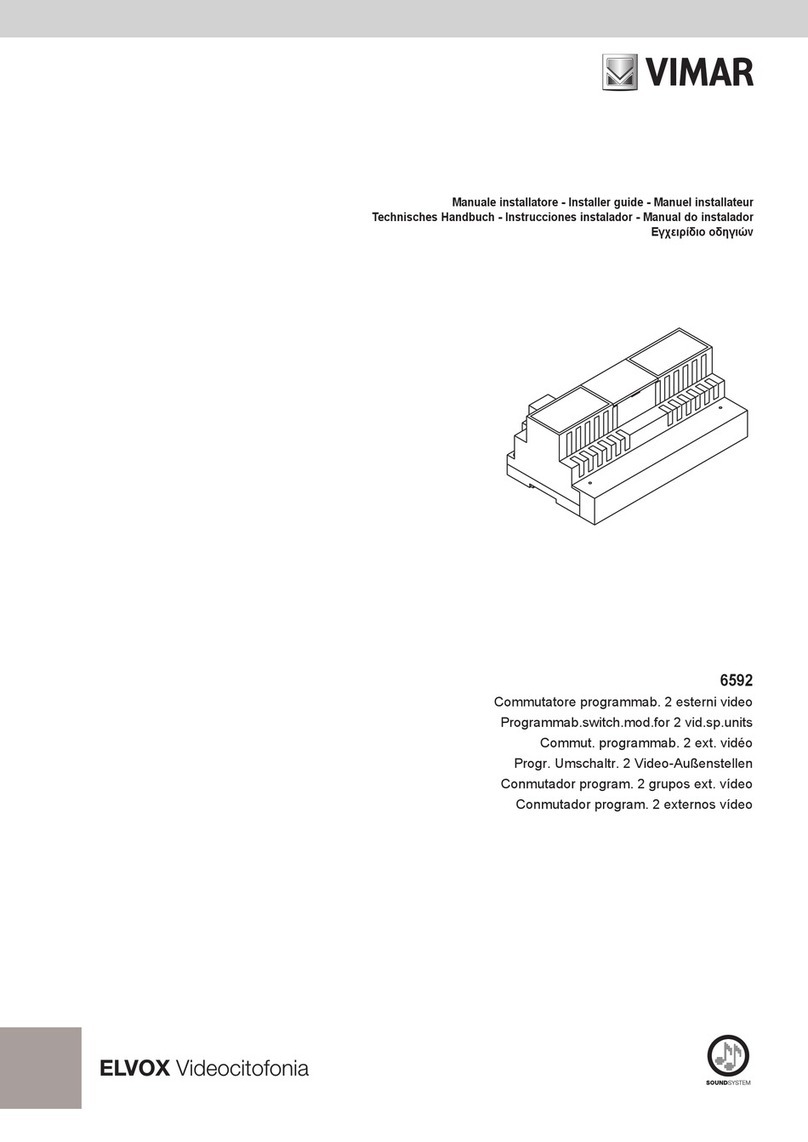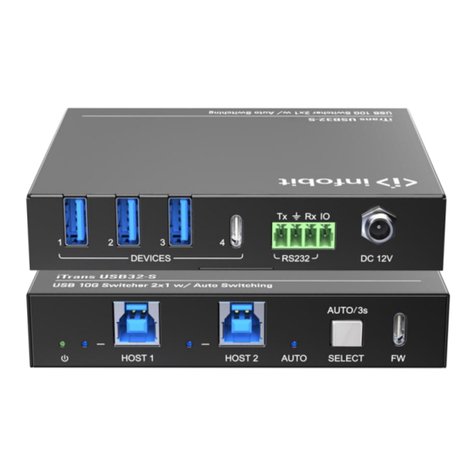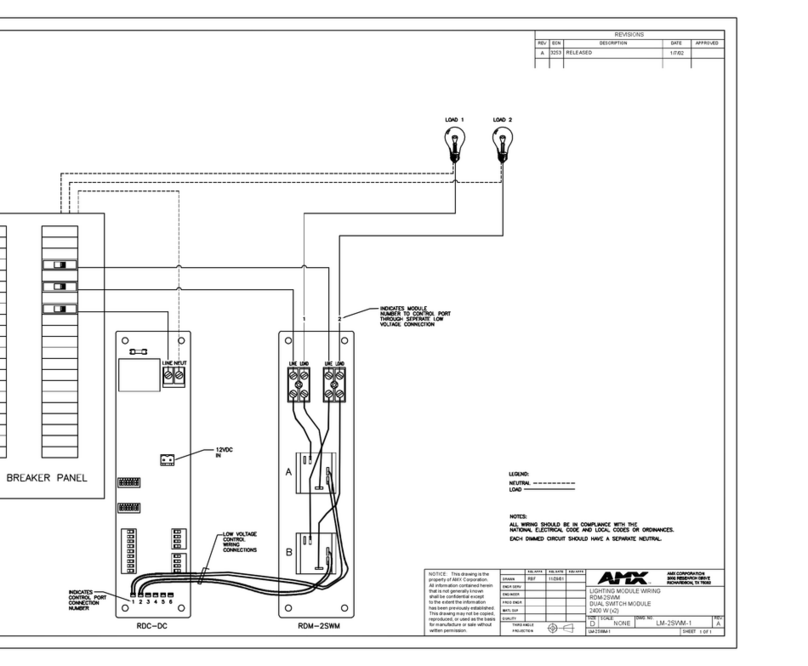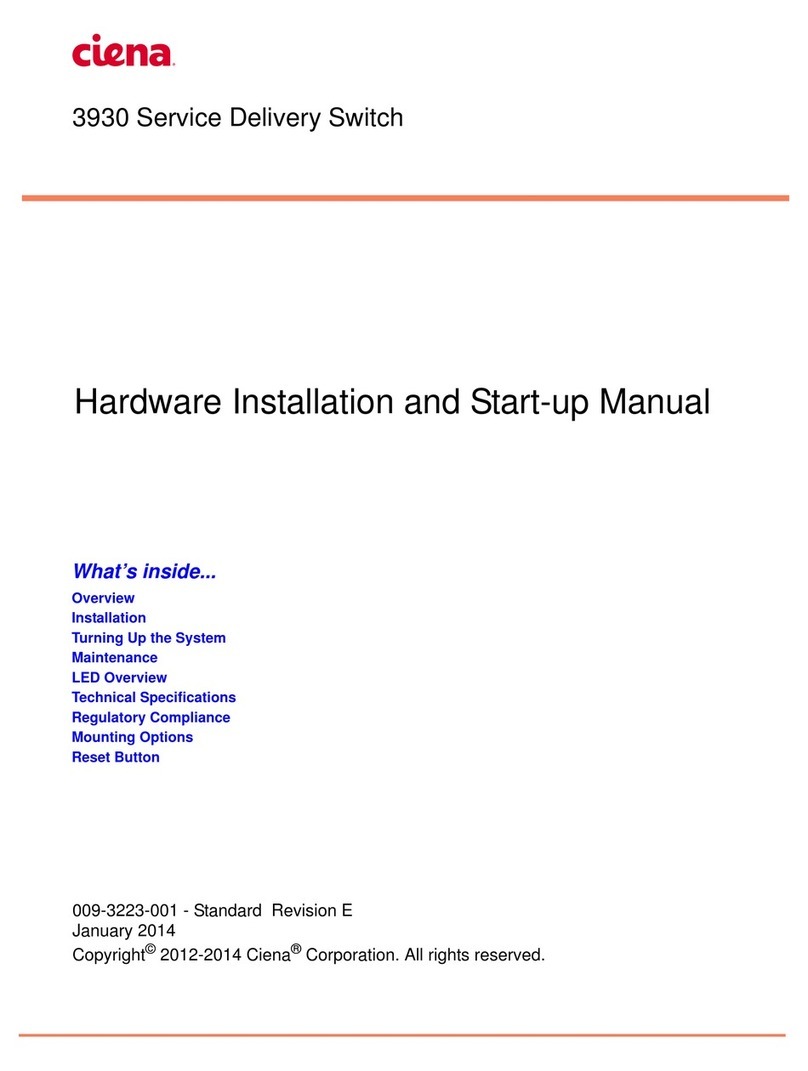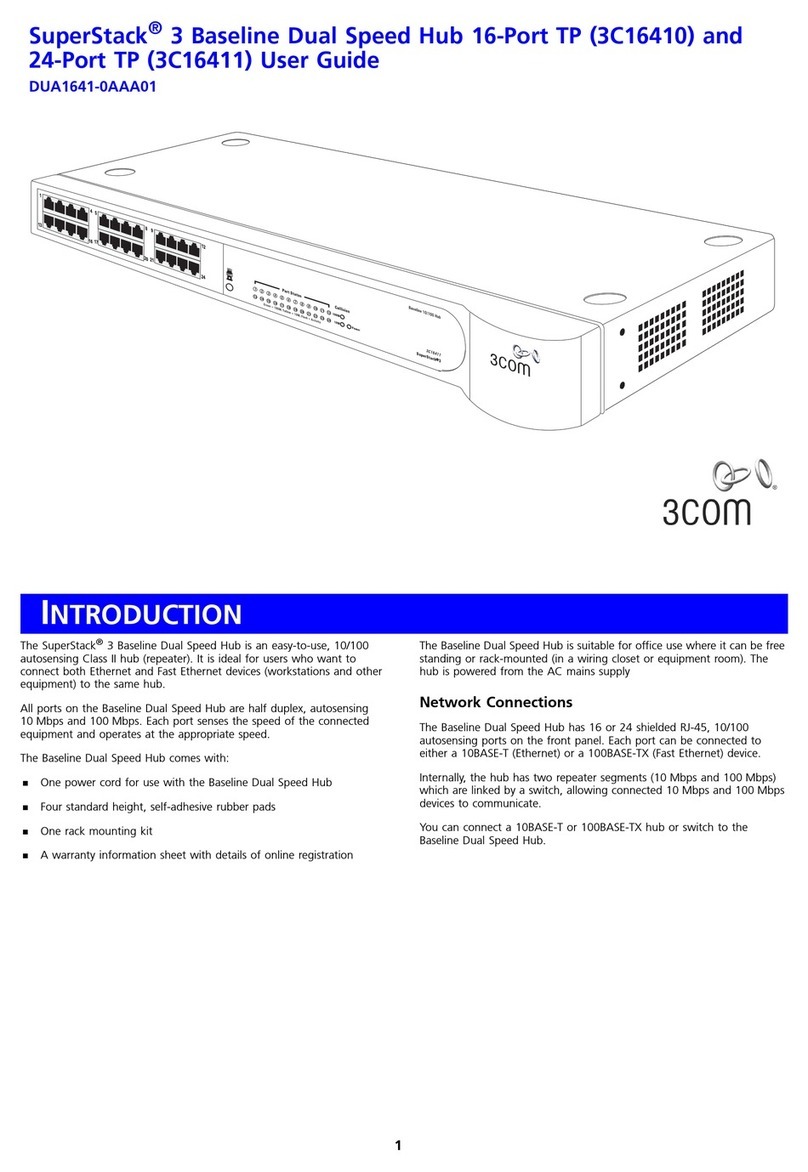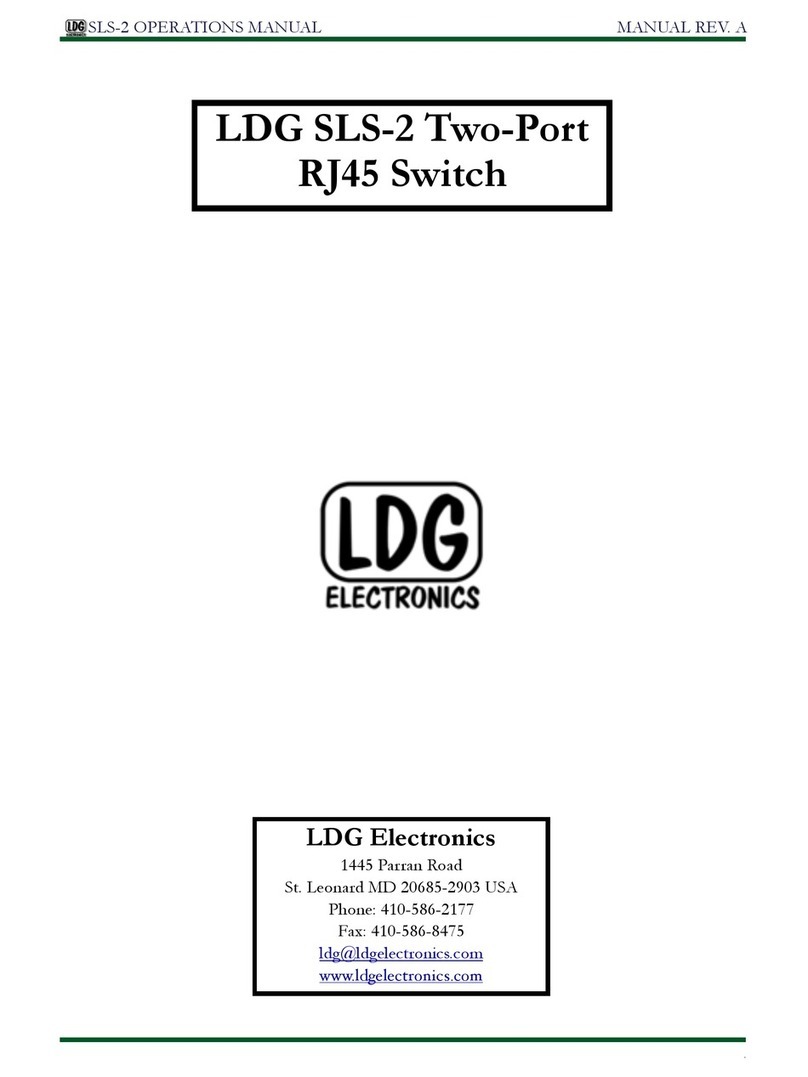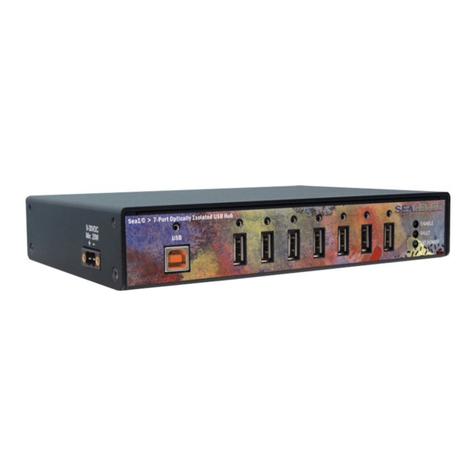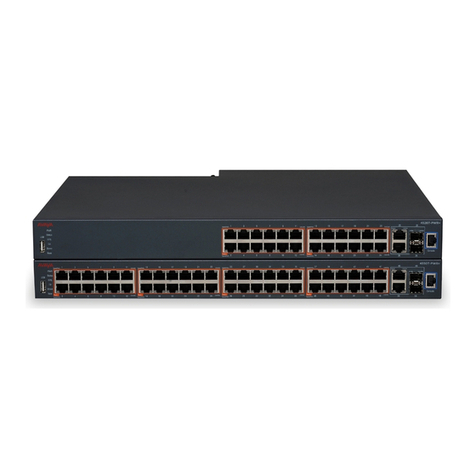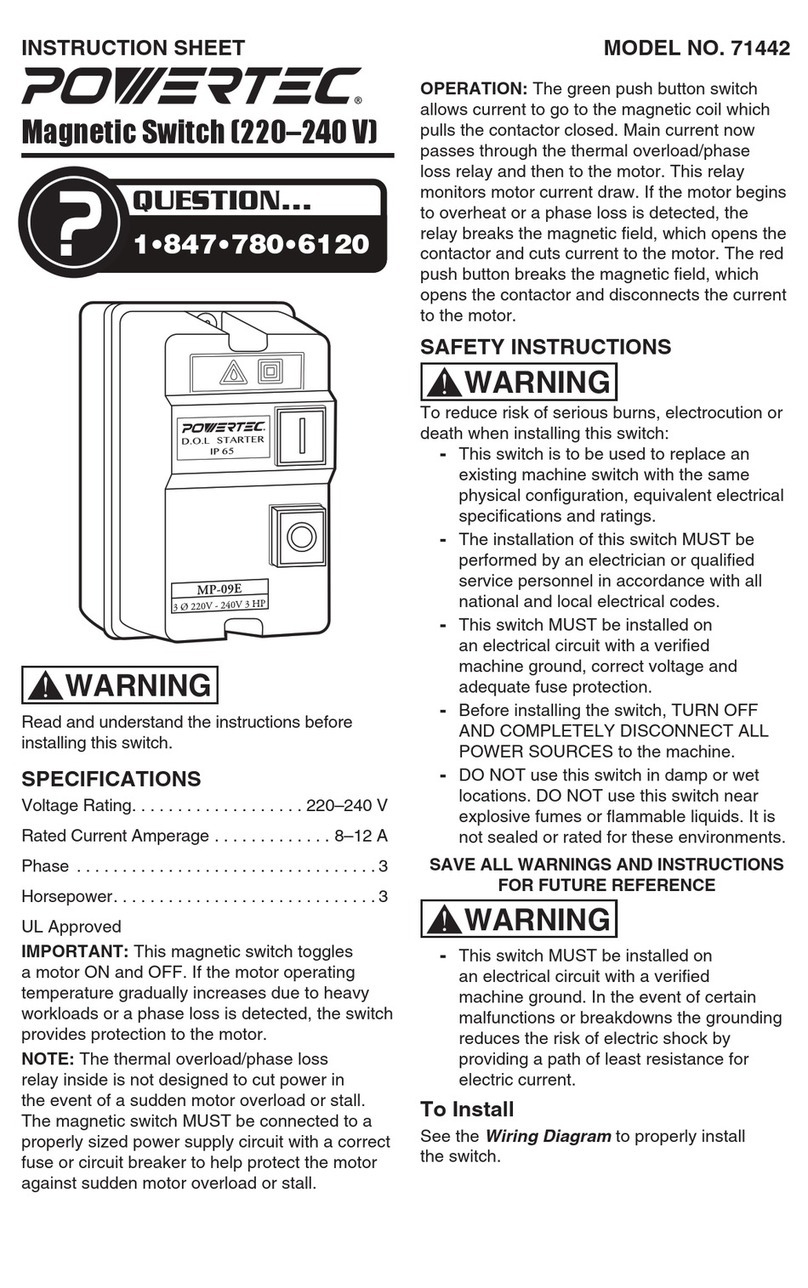Skytech RCAF-LMF-WWS User manual

___________________________________________________________________________________________________________
Rev. 7/10/15 Page 1 of 6
Skytech: RCAF-LMF-WWS
Model: RCAF-LMF-WWS
INSTALLATION AND OPERATING INSTRUCTIONS
INTRODUCTION
This SKYTECH remote Wireless Wall Switch system was developed to provide safe, reliable, and user-friendly remote
control system for gas heating appliances. The system can be operated manually from the transmitter. The system
operates on one of 65,536 security codes that are programmed into the transmitter at the factory.
WALL TRANSMITTER
The wall transmitter operates on a (2) 3-volt button cell batteries
(included) made specifically for remote controls and electronic lighters.
Before using the wall transmitter, install the two (2) 3-volt button cell
batteries. Follow instructions below.
The wall transmitter has an ON/OFF rocker switch. When a rocker
switch on the wall transmitter is pressed, a signal light on the wall
transmitter illuminates briefly to verify that a signal has been sent. If the
signal light does not illuminate, check the batteries. Upon initial use,
there may be a delay of five seconds before the remote receiver will
respond to the wall transmitter.
TO INSTALL BATTERIES
1. Remove face from backing plate by insetting a small screwdriver into
the small slot at the top or bottom of the faceplate as shown below then
snap OFF.
2. Locate the (2) holders for the 3V button cell batteries.
3. Place the button cell batteries into the battery holders and snap into
place. (Make sure that the batteries are installed with the (+) plus side as
shown to the right.
4. After the batteries are installed replace the faceplate on the base.
IF YOU CANNOT READ OR UNDERSTAND THESE INSTALLATION INSTRUCTIONS DO NOT
ATTEMPT TO INSTALL OR OPERATE
ON
OFF
Indicator
Light
+
Plus
Side
+
Plus
Side
Insert batteries
into holder and
snap into holder
Insert small screwdriver
into slot and pop out
batteries from holder

___________________________________________________________________________________________________________
Rev. 7/10/15 Page 2 of 6
Skytech: RCAF-LMF-WWS
TO REMOVE THE BATTERIES
1. Remove face from backing plate by insetting a small screwdriver into
the small slot on the side at the top or bottom of the faceplate as shown
to the right then snap OFF.
2. Locate the (2) holders for the 3V button cell batteries.
3. Insert a small screwdriver into the slot at the button cell battery and
pop the battery out (Slots shown in picture above).
4. After the batteries are installed replace the faceplate.
WALL MOUNTING THE TRANSMITTER
1. Remove face from backing plate by insetting a small screwdriver into the
small slot at the top or bottom of the faceplate as shown to the right then snap
OFF.
2. Locate the (2) two mounting holes and mark the holes on the wall. Use the
(2) two dry wall anchors and screws (that are supplied) to mount the base plate
to the wall as shown.
3. The wall transmitter can also be mounted onto an existing (Plastic) electrical
box.
4. Base plate should be mounted level on the wall for best operation.
INSTALLING THE ON/OFF SOLENOID
NOTE: The AFLMF valve kit comes with a brass cap fitting that must be removed before the ON/OFF solenoid can be installed. Under
this brass cap fitting there is a unique safety seal that prevents gas leakage after the brass cap fitting has been removed. This allows
the brass cap fitting to be removed and the ON/OFF solenoid to be installed with out shutting off the main gas valve that supplies gas to
the AFLMF valve kit.
1. Remove the (2) screws from the front metal faceplate then remove the faceplate on the AFLMF valve kit and set aside.
2. Using a screwdriver remove the brass cap fitting. Note Figure 1 (Retain the brass cap fitting so if the solenoid is removed
the brass cap fitting can be reinstalled)
3. Install the ON/OFF solenoid into the threaded hole on the AFLMF that the brass cap fitting was removed from and screw
into place and do not over tighten. NOTE: Figure 2
4. Replace the AFLMF front faceplate and reinstall the (2) screws and tighten.
5. Make sure to locate the RED & BLACK wires so they come out the back of the AFLMF to connect to the receiver.
Figure #1 Figure #2
Insert small screwdr
into slot at the top o
and pop cover of
WALL
3V
3V
ON/OFF
Solenoid
Standard
Screwdriver
AFLMF
Valve Assembly
Brass Cap
Fitting
Standard
Screwdriver
AFLMF
Valve Assembly

___________________________________________________________________________________________________________
Rev. 7/10/15 Page 3 of 6
Skytech: RCAF-LMF-WWS
WIRING INSTRUCTIONS
CONNECTING THE RECEIVER TO THE AFLMF VALVE KIT WITH THE LATCHING SOLENOID
1. Connect the BLACK 18 gauge stranded wire with the 1/4’ female terminal from the receiver to the BLACK wire with the 1/4” male
terminals from the valve solenoid.
2. Connect the RED 18 gauge stranded wire with the 1/4’ female terminal from the receiver to the RED wire with the 1/4” male
terminals from the valve solenoid.
3. After receiver wires are connected to the valve solenoid wire make sure the receiver shield is located over the receiver and then
locate the receiver in an area that will not exceed the 130° F. This location will always be away from the AFLMF towards the front of
the firebox.
IMPORTANT NOTE: Operation of these controls is dependent on which wire is attached to which terminal. If operation of control
does not correspond to operating buttons on transmitter, reverse wire installation at the receiver or at the control.
NOTE: Up to 6.3 VDC of power is provided at the receiver terminal.
POWER SETTING – RCAF-LMF
The RECEIVER comes from the factory programmed to provide pulse DC voltage (5.5) VDC to 6.3 VDC) to a latching solenoid
REMOTE RECEIVER
IMPORTANT
THE REMOTE RECEIVER SHOULD BE POSITIONED WHERE AMBIENT
TEMPERATURES DO NOT EXCEED 130° F.
The remote receiver (right) operates on four 1.5V AA-size batteries. It is
recommended that ALKALINE batteries be used for longer battery life and
maximum microprocessor performance. IMPORTANT: New or fully charged
batteries are essential to proper operation of the remote receiver as a latching
solenoid power consumption is substantially higher than standard remote
control systems.
REMOTE
ON
OFF
LEARN
Requires 4-AA 1.5V
alkaline batteries
Learning
button
Remote Receiver
Battery cover slides on/off
Slide
Switch
ON
REMOTE
OFF

___________________________________________________________________________________________________________
Rev. 7/10/15 Page 4 of 6
Skytech: RCAF-LMF-WWS
NOTE: The remote receiver will only respond to the transmitter when the 3-position slide button on the remote
receiver is in the REMOTE position. The remote receiver houses the microprocessor that responds to commands from
the transmitter to control system operation.
FUNCTIONS:
1. With the slide switch in the REMOTE position, the system will only operate if
the remote receiver receives commands from the transmitter. Upon initial use
or after an extended period of no use, the ON button may have to be pressed
for up to three seconds before activating solenoid. If the system does not
respond to the transmitter on initial use, see LEARNING TRANSMITTER TO
RECEIVER section.
2. With the slide in the OFF position, the system is OFF.
3. It is suggested that the slide switch be placed in the OFF position if you will be
away from your home for an extended period of time. Placing the
slide switch in the OFF position also functions as a safety "lock out"
by both turning the system OFF and rendering the transmitter
inoperative.
INSTALLATION INSTRUCTIONS
WARNING
DO NOT CONNECT REMOTE RECEIVER DIRECTLY TO 110-120VAC POWER. THIS WILL BURN
OUT THE RECEIVER. FOLLOW INSTRUCTIONS FROM MANUFACTURER OF GAS VALVE FOR
CORRECT WIRING PROCEDURES. IMPROPER INSTALLATION OF ELECTRIC COMPONENTS
CAN CAUSE DAMAGE TO GAS VALVE AND REMOTE RECEIVER.
INSTALLATION
The remote receiver can be mounted on or near the fireplace hearth. PROTECTION FROM EXTREME HEAT IS VERY IMPORTANT.
Like any piece of electronic equipment, the remote receiver should be kept away from temperatures exceeding 130º F inside the
receiver case. Battery life is also significantly shortened if batteries are exposed to high temperatures.
Make sure the remote receiver switch is in the OFF position. For best results it is recommended that 18 gauge stranded wires should
be used to make connections and no longer than 20-feet.
WIRING INSTRUCTIONS
CONNECTING THE RECEIVER TO A VALVE WITH THE LATCHING SOLENOID
4. Connect the BLACK 18 gage stranded wire with the 1/4’ female terminal from the receiver to the BLACK wire with the
1/4” male terminals from the valve solenoid.
5. Connect the RED 18 gage stranded wire with the 1/4’ female terminal from the receiver to the RED wire with the 1/4”
male terminals from the valve solenoid.
6. After receiver wires are connected to the valve solenoid wire make sure the receiver shield is located over the receiver
and then locate the receiver in an area that will not exceed the 130° F.
IMPORTANT NOTE: Operation of these controls is dependent on which wire is attached to which terminal. If operation
of control does not correspond to operating buttons on transmitter, reverse wire installation at the receiver or at the
control.
NOTE: Up to 6.3 VDC of power is provided at the receiver terminal.
Black Wire
Red Wire
ON/OFF
SOLENOID
1/4 Male
Connectors
Black Wire
Red Wire
Wire terminals
Remote Receiver
Receiver
Slide
Button
REMOTE
OFF ON
LEARN
Remote Receiver
Receiver
Slide
Button
REMOTE
OFF
PULSE MODE
Terminals
RED Wire
1/4” Female
Terminal
BLACK Wire
1/4” Female
Terminal
(Back of Receiver)
BLACK Wire
1/4” Female
Terminal
RED Wire
1/4” Female
Terminal
LEARN
ON

___________________________________________________________________________________________________________
Rev. 7/10/15 Page 5 of 6
Skytech: RCAF-LMF-WWS
GENERAL INFORMATION
LEARNING TRANSMITTER TO RECEIVER
Each transmitter uses a unique security code. It will be necessary to press the LEARN button on the receiver to accept
the transmitter security code upon initial use, if batteries are replaced, or if a replacement transmitter is purchased from
your dealer or the factory. In order for the receiver to accept the transmitter security code, be sure the slide button on the
receiver is in the REMOTE position; the receiver will not LEARN if the slide switch is in the ON or OFF position. The
LEARN button in located on the front face of the receiver; inside the small hole labeled LEARN. Using a small
screwdriver or end of a paperclip gently press and release the black LEARN button inside the hole. When you release
the LEARN button the receiver will emit an audible “beep”. After the receiver emits the beep press the transmitter ANY
button and release. The receiver will emit several beeps indicating that the transmitter’s code has been accepted into the
receiver.
The microprocessor that controls the security code matching procedure is controlled by a timing function. If you are
unsuccessful in matching the security code on the first attempt, wait 1 - 2 minutes before trying again--this delay allows
the microprocessor to reset its timer circuitry--and try up to two or three more times.
OPERATION
7. This remote control will operate the gas valves latching solenoid to open the gas flow to full ON.
8. When the ON button is depressed the transmitter sends a RF signal to the receiver. The receiver then sends a
pulse of 6-volts of power to the solenoid. The solenoid then opens the gas flow to the burner then to full ON.
9. When the OFF button is depressed the transmitter sends a RF signal to the receiver. The receiver then sends a
pulse of 6-volts of power to the solenoid. The solenoid then closes the gas flow to the burner then to full OFF.
10. The remote control will only work with the hand held transmitter. The receiver slide switch is only for positive OFF or
REMOTE operation.
NOTE: Extensive use of the Latching Solenoid (ON/OFF) will reduce the receiver's battery life significantly.
BATTERY LIFE
Life expectancy of the alkaline batteries in the 1001D-AF1 (Transmitter) can be up to 12 months depending on use of the
solenoid function. Replace all batteries annually. When the transmitter no longer operates the remote receiver from a
distance it did previously (i.e., the transmitter's range has decreased) or the remote receiver does not function at all, the
batteries should be checked. It is important that the remote receiver batteries are fully charged, providing combined
output voltage of at least 5.0 volts. The transmitter should operate with as little as 2.4 volts battery power. NOTE:
Extensive use of the Solenoid will reduce the receiver's battery life significantly.
TROUBLE SHOOTING
If you encounter problems with your fireplace system, the problem may be with the fireplace itself or it could be with the
1001D-AF1 remote system. Review the fireplace manufacturer's operation manual to make sure all connections are
properly made. Then check the operation of the remote in the following manner:
1. Make sure the batteries are correctly installed in the RECEIVER. One reversed battery will keep receiver from
operating properly.
2. Check battery in TRANSMITTER to ensure contacts are touching (+) and (-) ends of battery. Bend metal contacts in
for tighter fit.
3. Be sure RECEIVER and TRANSMITTER are within 20 to 25-feet operating range.
4. Keep RECEIVER from temperatures exceeding 120° F. Battery life shortened when ambient temperatures are above
115° F.
5. If RECEIVER is installed in tightly enclosed metal surround, the operating distance will be shortened.
NOTE:
1. Heat conditions can cause batteries to discharge when temperatures exceed 1150 F. Studies show that alkaline
batteries, when exposed to a constant temperature of 1200 F, can lose up to 50% of their operating power. When the

___________________________________________________________________________________________________________
Rev. 7/10/15 Page 6 of 6
Skytech: RCAF-LMF-WWS
battery cools down, it will partially recharge itself, but constant heating and cooling will reduce the battery’s normal life
expectancy.
2. Clear Codes: Memory in the receiver might be full if the learn button is pressed too many times. If this happens it will
not allow any more codes to be learned and no audible beep will be heard. To clear memory, place the receiver slide
switch into the REMOTE position. Press the learn button and release after 10 seconds. You should hear three (3)
long audible beeps indicating all codes have cleared. You can now “learn” the transmitter to the receiver as described
in the General Information Section.
SPECIFICATIONS
BATTERIES: Transmitter 12V - (A23) Remote Receiver 6V - 4 ea. AA 1.5 Alkaline
CC ID No.'s: Transmitter - K9L1001DA; Receiver - K9L330IRX
Operating Frequency: 303.8 MHZ
Canadian ISC ID No.'s: Transmitter – 2439 A-1001DA; Receiver – 2439A 3301RX
FOR TECHNICAL SERVICE, CALL: U. S. INQUIRIES CANADIAN INQUIRIES
(888) 672-8929 or (260) 459-1703 (877) 472-3923
WEBSITE: skytechpg.com
MANUFACTURED EXCLUSIVELY FOR SKYTECH II, Inc
FCC REQUIREMENTS
NOTE: THE MANUFACTURER IS NOT RESPONSIBLE FOR ANY RADIO OR TV INTERFERENCE CAUSED BY
UNAUTHORIZED MODIFICATIONS TO THIS EQUIPMENT. SUCH MODIFICATIONS COULD VOID THE USER’S
AUTHORITY TO OPERATE THE EQUIPMENT.
Table of contents
Other Skytech Switch manuals
Popular Switch manuals by other brands
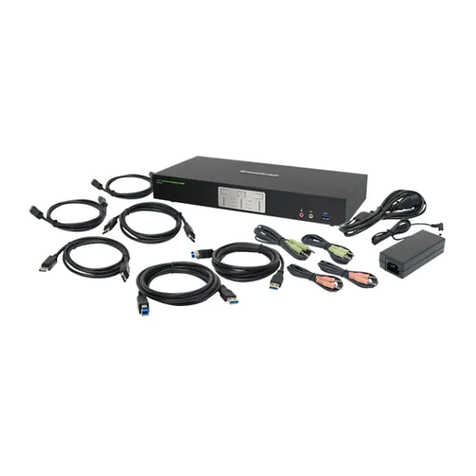
IOGear
IOGear M1087-b user manual
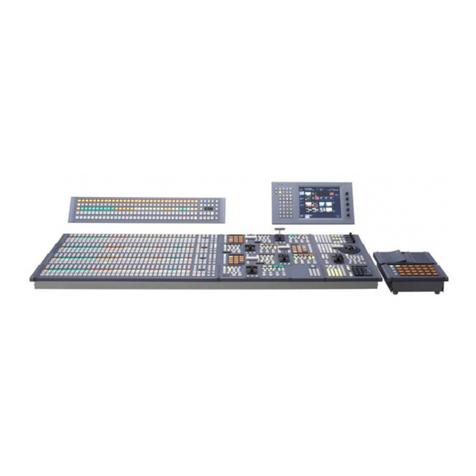
Sony
Sony MVS-8000X SystemMVS-7000X System user guide
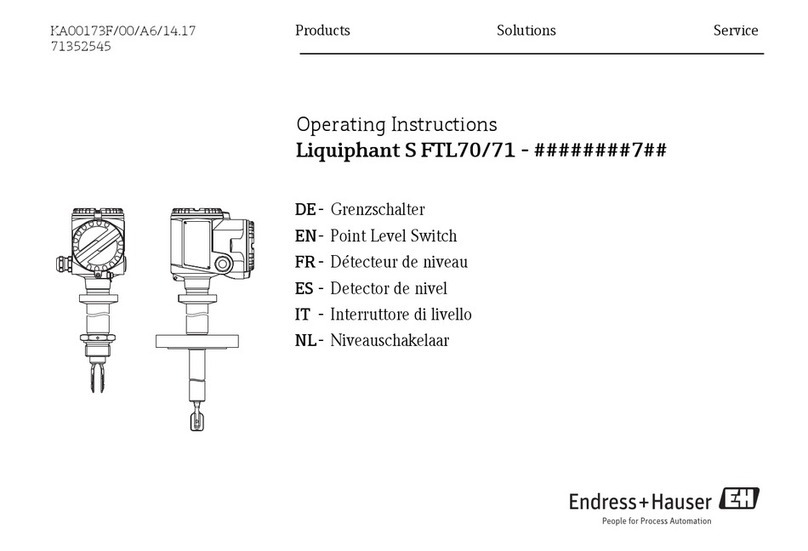
Endress+Hauser
Endress+Hauser Liquiphant S FTL70 operating instructions
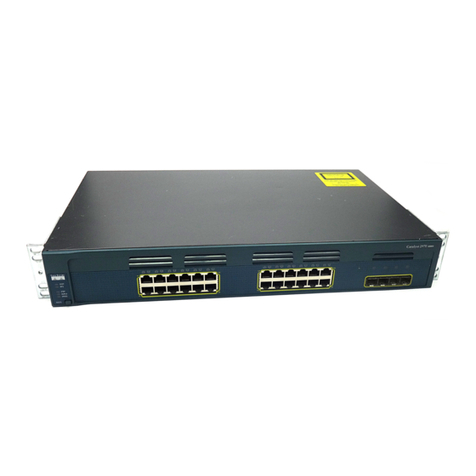
Cisco
Cisco 2970 - Catalyst Switch Hardware installation guide

WIKA
WIKA PSD-4-ECO operating instructions
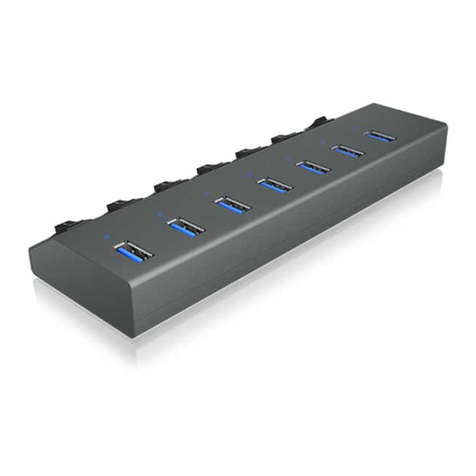
Icy Box
Icy Box IB-HUB1701-U3 Quick installation guide

